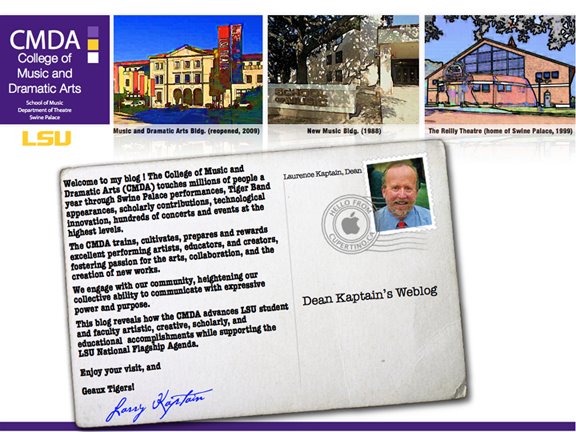LSU's Noel Bouley mentioned
August 22, 2011
United States Aspen Music Festival (13): Recitals by Edgar Meyer (bass) and Sarah Chang (violin), Steven Osborne and friends play Ravel’s Piano Trio, Opera Theater does West Side Story. 19.8.2011 (HS)
Aspen Opera Theater Center knew that its decision to present a fully staged West Side Story would present a challenge. The iconic musical, an adaption of “Romeo and Juliet” set in the gang culture of 1950s New York (with the Jets as the Montagues, the Sharks the Capulets), fits into 2011′s Shakespeare theme. Young opera singers, however, must adapt to unfamiliar singing styles, they must dance convincingly, and there’s dialog. Lots of it, in accented American English.
So let’s say that the production, which debuted Tuesday in Wheeler Opera House, achieved partial success. On the plus side, the orchestra, under Michael Christie, captured the flair of Bernstein’s music well. The sets were fine and Edward Berkeley’s unobtrusive direction brought out nuances of the book and the score. The singing, by and large, reflected the music’s distinctive jazz- and Latin-inflected styles. It was also a pleasure to hear such an iconic musical in its original orchestration and volume level, without the distortion and amplification so common in theaters these days.
Only a few standouts in the all student cast actually managed to combine singing, dialog and movement into complete roles, however. Opening night jitters might have been responsible for a tentativeness in many of the performances, especially in dialog but also in song and dance, which had the effect of taming the book and score. For the dancing, which carries much of the plot, the cast was game and Jeanne Slater’s simplified choreography managed to get the story told, but not with the pizzazz that can be the glory of this piece.
As Tony, Brenton Ryan matched his light lyric tenor well with the creamy soprano of Ying Fang (Maria). They sounded hesitant in all their scenes together, however. It’s probably unfair to cast a non-English speaker as Maria, which requires dialog in a Puerto Rican accent. Ying did better in the second act, especially opposite mezzo-soprano Megan Marino’s Anita in the powerful “A Boy Like That”/”I Have a Love” scene.
Marino, in fact, just about stole the whole show. In scene after scene, she owned the stage, a compelling presence informing songs and ensembles such as “America,” and the “Tonight” quintet. Her dialog and dancing looked natural and assured. Same can be said of baritone Timothy Campbell, who carried himself like a gang leader and sang Riff’s jazzy songs, such as “Cool,” with idiomatic élan. Tenor Adrian Rosas made a worthy counterpart as Bernardo, and Noel Bouley (a superb Falstaff last month) anchored his scenes as Doc, his dialog worthy of a pro actor.
Quality of dancing notwithstanding, musical values carried ensemble scenes such as the wordless Prologue, “America,” “The Dance at the Gym,” and “Officer Krupke,” which benefited from secure singing and Christie’s clear conducting. The final scene, however, which should have everyone in tears, left me dry-eyed despite the best efforts of the orchestral underscoring.
Those who bought special event tickets for Sarah Chang’s concert Thursday in the tent can be excused if they felt a bit short-changed. Her contribution to the 75-minute event consisted of two short pieces and the violin part of Brahms’ Piano Quartet No. 3, all of which she played with her characteristic flair. Christopher Richardson, a very young pianist, opened the concert with short pieces by Schumann and Liszt. He played them extraordinarily well, but why was he on a Sarah Chang special event? Accompanied deferentially by Rita Sloan, Chang spun out a lovely long line in Bach’s aria commonly known as “air on the G string” (the second time we have heard it this summer), and dug into Gardel’s tango “Por una cabeza” at too rapid a clip to let the music do its work. Chang, Sloan, cellist Brinton Smith and violist Stefan Wyrczynski played the quartet with warmth and suppleness.
Bassist Edgar Meyer certainly gave his audience their money’s worth in his solo recital Wednesday night in Harris Hall. His playing on Bach’s Unaccompanied Cello Suite No. 1 was the most nuanced I have heard from him (he plays this one often). A new three-movement composition for solo bass, identified only as “a work in progress,” brimmed with inventive ideas, especially the pizzicato second movement, which seemed to improvise on a distinctive scale, and the rondo-like finale, which kept returning to a cheeky riff. The second half consisted mostly of older compositions structured as in jazz, setting out a song form, improvising and returning to the song, entertaining to hear and jaw-dropping in their virtuosity. For encores he played two duets with his son George, a violinist in the Festival Orchestra this year. The first, a deceptively simple composition by Meyer the Younger, had charm and soul, and the other came straight out of bluegrass.
Monday’s faculty chamber music concerts have been at a consistently high level this year, and the performance this week of Ravel’s Piano Trio took things to a peak. Pianist Steven Osborne, cellist Smith and violinist Bing Wang (three quarters of the quartet for the Messiaen on Saturday) dived into the music with a splash and never let up. It’s a gorgeous trio, with twists and turns typical of Ravel, and the musicians exulted in it all.
Earlier, a mostly student ensemble joined pianist David Friend, a champion of new music who plays with extraordinary sensitivity, in a juicy performance of Messiaen’s Oiseaux exotiques, a collection of bird calls colored by the composer’s orchestrations. Friend also played onStimulus Package, a 2009 piece by composer in residence George Tsontakis. It weaves music from his ancestral home, Crete, with modern gestures. Cello soloist Mariel Roberts, a member of the Aspen Contemporary Ensemble, played the challenging part soulfully, accompanied by Friend and two percussionists.
Harvey Steiman


No comments:
Post a Comment